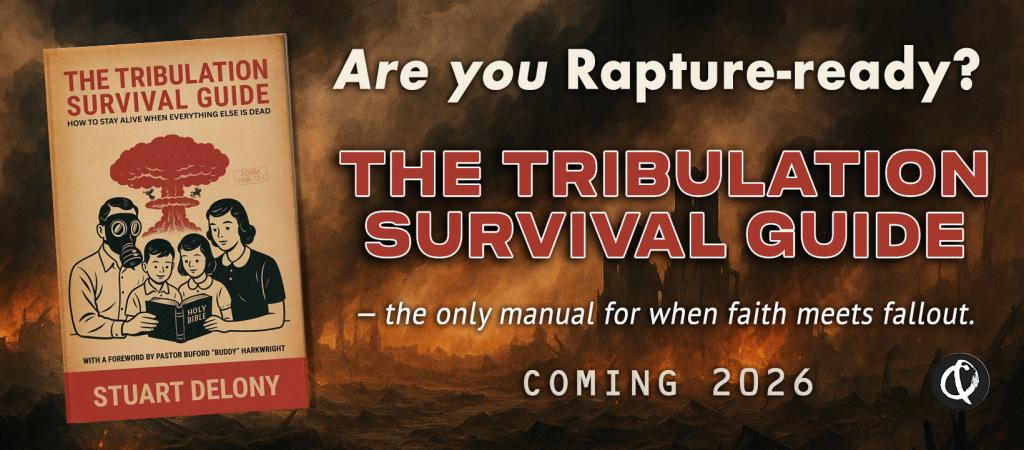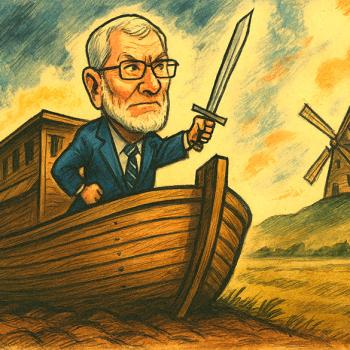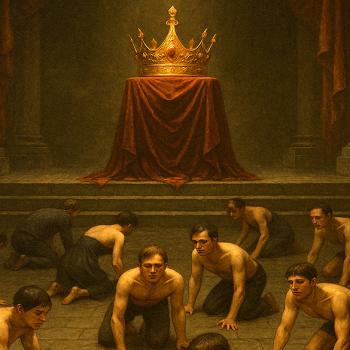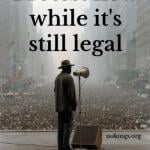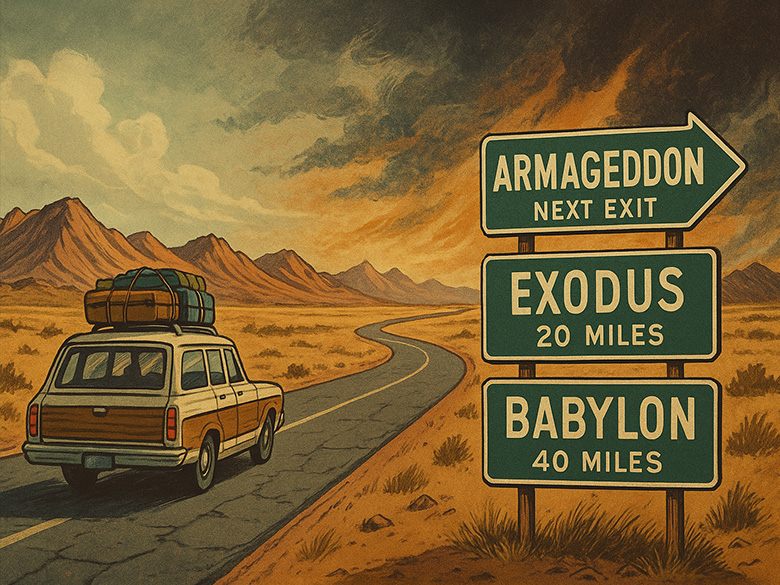
The Old Testament is a chaotic road trip—full of divine temper tantrums, bad decisions, and people repeatedly ignoring obvious red flags. (Oh look, a golden calf! Let’s worship that!) It’s a saga of migrations, exiles, wars, and prophetic weirdness. It doesn’t move in a straight line; it stumbles forward, backtracks, makes pit stops in Babylon, and occasionally sets entire cities on fire. It’s a travelogue—a messy, evolving account of faith that feels more like a journal of lessons learned (or ignored) than a perfectly scripted narrative.
And then there’s Revelation—the Bible’s final act. The plot twist no one saw coming and fewer people understand. If the Old Testament is a meandering road trip, Revelation is the deranged epilogue that hijacks the story and veers straight into an apocalyptic fever dream. It’s like the Bible was humming along, working through its issues, and then suddenly a guy on an island starts hallucinating dragons and multi-horned beasts, and everyone decides that this is the part we’re supposed to build our faith around.
For centuries, Christianity saw scripture as a living, evolving conversation about God and humanity. Then Revelation slammed the door shut and said, This is the end. No more questions. But what if that was the wrong move? What if the Bible isn’t an epilogue, but a travelogue—one that was never meant to be finished?
The Old Testament: A Holy Road Trip Gone Wrong (and Occasionally Right)
To see how the story wanders before Revelation tries to end it, let’s start where the road begins.
The Hebrew scriptures are a sprawling, wild mess—and that’s what makes them interesting. They aren’t trying to force a single narrative; they contain conflicting accounts, debates, and evolving understandings of God. The Israelites wrestled with their faith, sometimes literally.
You get creation myths, legal codes, nationalistic war stories, poetry, lamentations, and prophets raging against corruption. God starts off smiting and then gradually evolves into a figure who values justice and mercy. (Progress!) The overarching theme? It’s a journey. A messy, inconsistent, frustrating, and fascinating journey.
Judaism still treats these scriptures as a conversation—a travelogue of faith. They debate them, reinterpret them, argue over meaning. Christianity, on the other hand? It tried to tie everything up with a bow.
The New Testament: When the Travelogue Takes a Detour
Then along comes Jesus—a reformer, a challenger, a teacher who didn’t seem interested in creating an ending. He was all about opening doors, not closing them. The early church followed suit, wrestling with its identity and how to include outsiders (Spoiler: Paul wins that one). The epistles read like a string of pastoral emails trying to solve internal drama. The movement was still on the road, still figuring itself out.
And then we hit Revelation.
Revelation: The Epilogue Nobody Asked For
Revelation is where the Bible goes full cinematic universe crossover event. If you thought Ezekiel was weird, buckle up. Here comes the beast with seven heads, rivers turning to blood, and Jesus riding in like an Avenger with a sword coming out of his mouth (because why not?).
Early Christians didn’t even agree on whether this thing should be in the Bible—it barely made the cut. And yet, modern evangelicals treat it like the only part that matters. Jesus’ teachings? Nice, but have you read about the Four Horsemen?!
Revelation has been hijacked into an end-times rulebook by people more interested in watching the world burn than doing anything useful. It’s turned Christianity into a doomsday cult obsessed with countdowns, blood moons, and geopolitical tea leaves.
But was that ever the point? Or did John of Patmos just write a wild anti-Roman political screed—and we’ve spent 2,000 years misreading it?
What If We Saw the Bible as a Travelogue Instead?
What if the Bible wasn’t meant to have a neat ending? What if faith was meant to stay open-ended? The Bible makes far more sense as an ongoing conversation than a locked-and-loaded roadmap to doomsday.
That’s what faith was meant to be all along—a conversation that grows with us, not one that ends in fear.
Christianity doesn’t need another self-fulfilling apocalypse. It needs to stop staring at the sky waiting for cosmic retribution and start moving forward. The Bible isn’t a script we’re supposed to memorize—it’s a story we’re supposed to keep writing.
Are We Hitching a Ride or Waiting for the Rapture?
So, which version of the Bible makes more sense? The travelogue—the journey of faith full of questions, wrestling, and discovery? Or the epilogue—the one that slams the door, locks up faith in rigid certainty, and tells everyone to brace for doom?
One keeps faith alive. The other turns it into a death cult with bad theology and worse fiction (looking at you, Left Behind).
Faith, after all, isn’t about reaching the end—it’s about learning to stay on the road together. Maybe it’s time to leave the apocalypse fan fiction behind and get back on the road. After all, if the Old Testament has taught us anything, it’s that God loves a good road trip.
For more Snarky Faith, check out the podcast and more:
- Snarky Faith website
- Snarky Faith on Instagram: @stuartdelony
- Snarky Faith on YouTube: @snarkyfaith
- Snarky Faith on Bluesky: @snarkyfaith.bsky.social
- Snarky Faith Group on Facebook: www.facebook.com/snarkyfaith
- Snarky Faith t-shirts and mugs available here.


